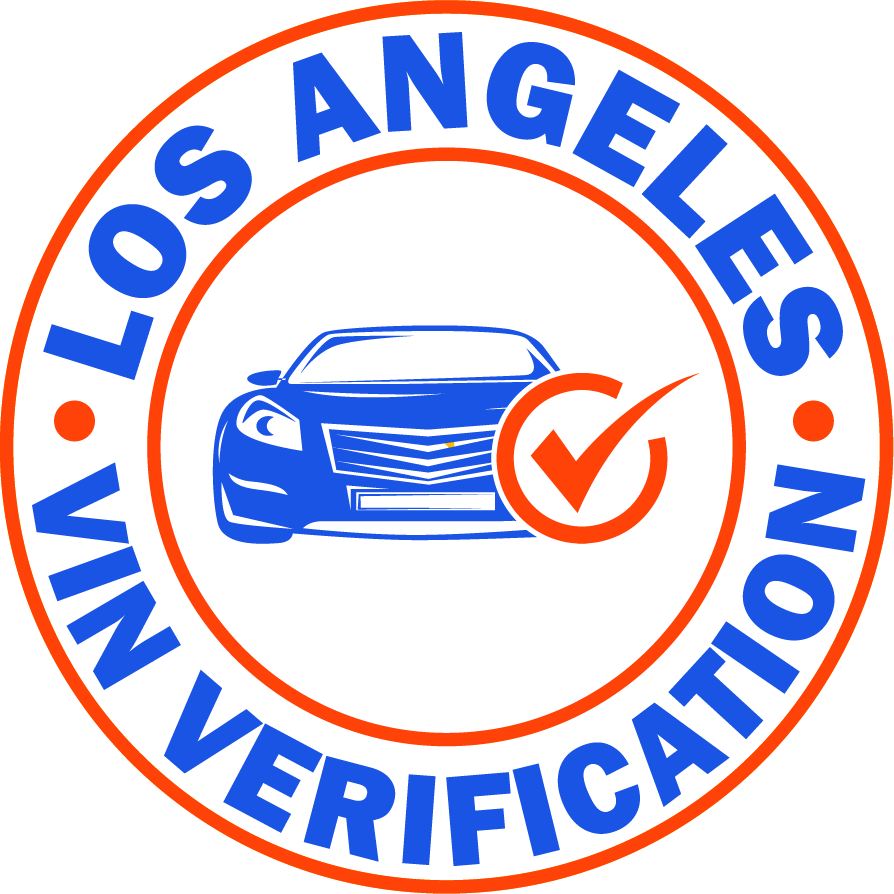In Los Angeles, the process of mobile VIN verification is notably influenced by local weather conditions, which can range from sudden rain showers to sweltering heat waves. These weather variations pose unique challenges, such as obscured vehicle identification numbers during rain or equipment malfunctions in extreme heat, complicating the task for inspectors and potentially delaying the verification process. As we consider these impacts, it becomes apparent that understanding and adapting to weather conditions is crucial for maintaining the accuracy and efficiency of mobile VIN verifications. What strategies might be employed to mitigate these weather-related disruptions?
Rain Delays and Visibility
How does rain impact the efficiency of mobile VIN verification in Los Angeles?
Rain significantly hampers the process by reducing visibility, making it a challenging endeavor to accurately locate and verify vehicle identification numbers (VIN). Inspectors face considerable difficulty during inspections, as obscured VIN labels due to wet conditions demand meticulous attention to detail and can prolong the verification process.
Moreover, scheduling becomes a critical aspect under rainy circumstances. The unpredictability of Los Angeles rain can lead to sudden delays, necessitating a flexible approach to appointment times. Inspectors and vehicle owners alike must be prepared to reschedule at a moment's notice, prioritizing safety and the integrity of the verification process over rigid scheduling.
Additionally, equipment used in VIN verification, such as cameras and scanners, are also susceptible to malfunctions in damp environments. This not only extends the duration of each inspection but also risks the accuracy of the data captured, potentially leading to further administrative hurdles.
Impact of Heat on Inspections
While rain presents its own set of challenges for mobile VIN verification, high temperatures also significantly impact inspection procedures.
The heat increases humidity levels, leading to condensation within vehicle systems. This moisture can impair the performance of crucial components during VIN inspections, complicating the verification process. Moreover, the expansion of materials such as rubber and plastics due to heat may alter the alignment or legibility of the VIN, posing challenges for mobile VIN verification teams striving to maintain the integrity of their inspections.
Additionally, the functionality of electronic components critical to modern vehicles is often compromised in high temperatures. Such malfunctions can disrupt the smooth flow of the verification process, as these systems play a pivotal role in ensuring accurate and efficient inspections. The inspectors themselves are not immune to the effects of heat, which can diminish their focus and precision, vital for thorough VIN inspections.
Furthermore, the tools used in mobile VIN verification are susceptible to heat-related failures. Equipment malfunctions in extreme temperatures not only delay the process but also affect the overall performance and reliability of the inspection results, underscoring the challenges heat imposes on mobile VIN verification in Los Angeles.
Cold Weather Complications
Cold weather introduces unique challenges to mobile VIN verification, including decreased engine efficiency and potential visibility issues due to snow or ice accumulation.
In Los Angeles, although snow is rare, unexpected cold snaps can still affect vehicle performance and complicate the inspection process. Low temperatures often result in condensation within vehicle systems, which may temporarily hinder their functionality and accuracy during VIN verification tasks.
This condensation can obscure critical components or markings necessary for accurate inspection, leading to potential registration delays. Furthermore, if ice or snow does accumulate, it can restrict access to the vehicle's VIN plate, essential for completing the verification process. Such barriers not only slow down the procedure but can also deter vehicle owners and verifiers from initiating or completing the inspection in a timely manner.
Additionally, cold weather may exacerbate electronics issues within vehicles. Since modern cars rely heavily on electronic systems for operation and diagnostics, any malfunction or inefficiency caused by cold conditions could result in setbacks during VIN verification.
This is particularly problematic when such inspections are crucial for updating or establishing vehicle registration, ultimately impacting the freedom to legally operate the vehicle.
Wind-Related Disruptions
High winds pose significant challenges to mobile VIN verification in Los Angeles by damaging infrastructure and causing power outages. When high winds damage antennas and communication towers, the ripple effects are felt keenly in the mobile VIN verification sector. These disruptions can compromise the transmission of critical data, essential for completing timely and accurate verifications. Additionally, power outages can impede access to electronic systems necessary for verifying vehicle identification numbers, further complicating the process.
Furthermore, wind-related weather events can exacerbate travel delays, making it hazardous for verifiers to reach scheduled VIN verification appointments. The safety inspections integral to the VIN verification process are also impacted, as the structural integrity of buildings used for conducting these inspections might be compromised during severe wind conditions.
To mitigate these weather-related disruptions, understanding and anticipating wind patterns is crucial. This foresight allows for better planning and scheduling of VIN verifications, ensuring that the service remains efficient and safe despite the unpredictable whims of nature.
Scheduling Challenges
Adverse weather conditions, including heavy rain and thunderstorms, significantly complicate the scheduling of mobile VIN verifications by necessitating frequent cancellations or delays. These scheduling challenges often arise because adverse conditions compromise the safety and efficiency of conducting mobile services.
When verifiers and clients prioritize safety, it inevitably leads to delays and the need for appointment rescheduling. High winds and severe weather not only disrupt travel but can also affect the visibility necessary during the inspection process. This means that even when a verifier reaches the location, the conditions may not allow for a proper and thorough verification, pushing the scheduling further back.
Additionally, the seasonal influx of foliage can obscure VIN locations, requiring more time to locate and inspect, further delaying the process. Clients seeking mobile VIN verification services must often navigate these delays, which can be frustrating.
However, understanding that these precautions are in place to ensure the quality and accuracy of the verification process might ease some of this frustration. Providers of these services need to communicate effectively and manage expectations about potential weather-related disruptions to minimize inconvenience and uphold a standard of service.
Safety Concerns for Verifiers
Beyond scheduling issues, the safety of VIN verifiers is also jeopardized by extreme weather conditions during mobile inspections. Adverse weather, such as thunderstorms and high winds, significantly elevates safety risks by impairing visibility and creating hazardous conditions. These elements not only threaten the well-being of verifiers but also that of vehicle owners present during the inspections.
High winds are capable of displacing debris, potentially causing injury or damaging equipment. Similarly, heavy rain reduces visibility, making the detailed work of verifying a VIN more perilous. The risk of slips and falls increases with wet or icy conditions, posing a direct threat to the physical safety of verifiers navigating around vehicles. Furthermore, lightning during thunderstorms introduces the severe risk of electrical strikes, particularly for those conducting inspections in exposed areas.
Given these concerns, it is crucial for VIN verifiers to stay informed through accurate weather forecasts and to postpone outdoor inspections when severe weather threatens. Prioritizing safety not only ensures the well-being of the verifiers but also secures the freedom of movement and peace of mind for all parties involved.
Thus, respecting and responding to the whims of nature is essential in maintaining a safe verification process.
Verification Accuracy
Weather conditions significantly influence the accuracy of mobile VIN verification, posing challenges that can lead to errors in vehicle identification.
Heavy rainfall, for example, can obscure vehicle identification numbers, complicating the verification process. This obscuration forces verifiers to spend additional time clearing water or waiting for better conditions, which can delay the overall process and increase the chance of mistakes.
High humidity is another critical factor; it often causes condensation on vehicle surfaces, including where the VIN is located. This moisture can reduce visibility of the VIN, making it difficult for inspectors to confirm the number accurately.
Similarly, atmospheric conditions like fog can severely limit visibility, further challenging the accuracy of VIN verification by potentially leading to misidentification or errors in documentation.
Moreover, windy conditions often bring debris that can obstruct the VIN location on a vehicle. This not only impedes the verification process but also increases the risk of inaccuracies if parts of the VIN are hidden.
Severe weather events, such as thunderstorms, exacerbate these challenges by disrupting scheduled verifications, thus pressing inspectors to rush through checks when conditions improve, potentially compromising verification accuracy.
Protective Measures
To mitigate the impacts of weather on mobile VIN verification, several protective measures can be implemented.
Ensuring the vehicle is stationed in a sheltered area is crucial. This simple yet effective strategy safeguards the vehicle from adverse weather impacts, such as hail or heavy rainfall, thereby maintaining optimal conditions for the verification process. Additionally, visibility, a key factor in accurate VIN verification, is significantly enhanced under sheltered conditions.
Adopting flexible scheduling practices is another vital measure. By aligning verification appointments with local weather forecasts, mobile VIN verification services can sidestep disruptions caused by sudden weather changes. This approach not only ensures the safety and efficiency of the process but also respects the client's time, a fundamental aspect of service freedom.
Equipping verifiers with weather-appropriate gear is essential for their safety and comfort, enabling them to perform thorough inspections under any weather conditions. This gear ranges from waterproof clothing to durable, non-slip footwear, ensuring that verifiers can navigate around and interact with the vehicle safely, regardless of the environmental challenges posed by Los Angeles' diverse climate.
These protective measures collectively enhance the reliability and effectiveness of mobile VIN verification services.
Emergency Protocols
Emergency protocols for mobile VIN verification in Los Angeles are designed to ensure the safety and efficiency of operations during adverse weather conditions. These protocols are vital in managing the challenges posed by extreme weather, ensuring that inspections are not only effective but also adhere strictly to safety guidelines.
Mobile verifiers are equipped with the latest weather alerts to help them avoid risky conditions that could jeopardize their safety or disrupt the verification process.
To further support operational efficiency, verifiers may engage rescheduling policies when forecasts predict severe weather. This proactive approach minimizes risks and ensures that both verifiers and clients are not unnecessarily exposed to hazardous conditions.
Additionally, verifiers are equipped with emergency kits that include essential items such as first aid supplies, flashlights, and communication devices. These tools are crucial for maintaining communication and safety, especially in unpredictable weather scenarios.
Training for verifiers emphasizes the importance of situational awareness—a skill critical in navigating and adapting to rapid changes in the weather. This training ensures that all personnel are prepared to respond effectively to emergency situations, thereby upholding the integrity of the verification process and minimizing inconvenience to clients through efficient management of schedules and client notifications.
Client Communication
Effective client communication is essential for managing expectations and maintaining service transparency during adverse weather conditions that impact mobile VIN verification schedules in Los Angeles. When inclement weather disrupts the usual flow, it's crucial that vehicle verifier inspectors keep their clients informed about potential delays and adjustments. This level of transparency not only builds trust but also helps in setting realistic expectations for the verification process.
Adverse conditions such as heavy rain or thunderstorms can significantly affect cell signal, complicating timely communication. To combat this, utilizing a variety of communication channels—phone calls, texts, and emails—ensures that messages reach clients despite weather-related disruptions. This multi-channel approach facilitates swift updates and rescheduling, ensuring that clients are not left waiting unnecessarily and can plan their activities with greater freedom.
Moreover, by clearly explaining how weather conditions may influence the verification process, clients can better understand the challenges faced by mobile VIN verifiers. Establishing a clear protocol for communication during adverse weather streamlines operations and enhances client satisfaction.

